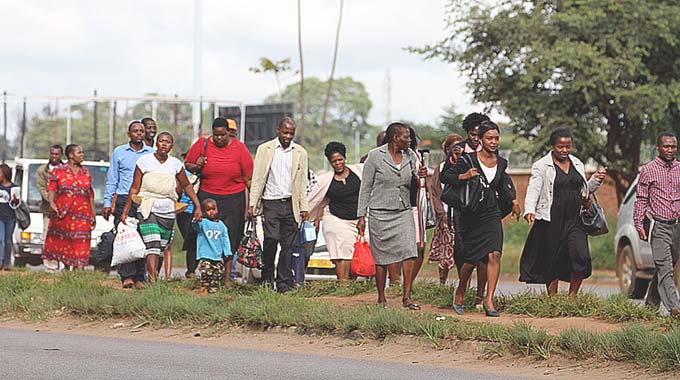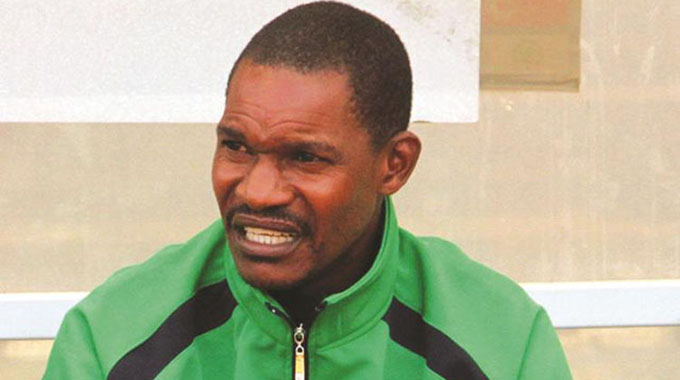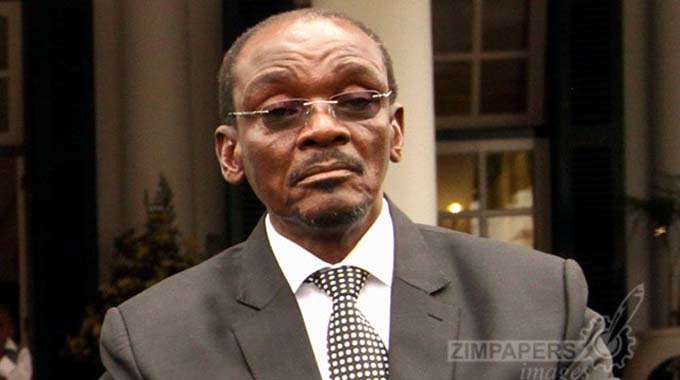Kombi ban: Long-term solution needed

Roselyne Sachiti and Leroy Dzenga
Harare has over the years degenerated into an untenable traffic jungle with vehicular activity which can be summed up in two words – chaotic and dangerous.
At the centre of the mayhem are errant commuter omnibus drivers and touts who have turned almost every street corner in downtown Harare into a pickup point. Navigating through streets like Cameroon and Mbuya Nehanda after 4pm is a task best left to rest.
Attempts to cure the madness over the years have left Harare City Council counting losses with a string of foiled operations which were met with resistance from operators. As such, the city fathers opted for Operation Restore Order, a move which was aimed at restoring sanity in the city centre.
In its arguments, the city initially maintained that if Harare was to be a serious investment destination, these were some of the prerequisites. But in less than 48 hours, the city decided to reverse the ban until such a time that facilities were ready and the system was streamlined.
Mr Michael Chideme, Harare City Council Corporate Communications Manager said the move was a reaction to complaints by residents; council was not acting out of arbitrarily.
“You remember Minister July Moyo gave a notice almost a month ago and in the interim we have been mobilising; we have been doing publicity. We realised 48 hours needed more time and we gave more time than 48 hours. We made another announcement about three days before implementation to remind people that the programme we had deferred is now on,” said Chideme.
At the time he was interviewed by The Herald, Chideme viewed the move as a new frontier for business exploration. Questions were also asked as to whether the move favoured people living with disabilities and the elderly.
“We were even more worried with their condition because of the situation obtaining in the CBD where they faced a grave risk because of the way commuter omnibuses drive around. At the new ranks, the facilities are there to cater for everybody,” he said.
If the ban had succeeded as planned people would have been dropped by commuter omnibuses at Coventry Bay and Seke Road rank. From there shuttles being provided by three companies — Zupco, CAG and Mukumba brothers — would have taken them into the central business district.
There were also murmurs over the criteria used to choose the key players but council said the door was open for all interested transport operators.
“If there are other players who are willing to come on board, they should come and we expand this Mass Bus Transit System. We are open and we want them on board, we are ready to work with everybody,” said Mr Chideme.
Commuters were worried transport costs would escalate in Harare. A person who would use $30 a month paying $1 for a two-way trip would have forked out $48 factoring in shuttle costs pegged at 30 cents a trip. The upwards review was seen as insensitive by those critiquing the new order.
“At the moment the cost has gone up but we are addressing issues of hygiene within the city; issues of investors. Yes, the cost has gone up but we feel in the long run when the system has more bus operators providing shuttles the prices will obviously go lower,” Chideme said earlier yesterday before the ban was reversed.
For all their disorder, kombis provided convenience as they were dotted across the CBD. Many say they will miss being able to board a ride home from any point. Council says with the way the shuttle system is structured, the difference will not be much.
“The idea was for shuttles to operate for 24 hours; for as long as there are people to be ferried they will be operating. They will be dropping people on multiple bus stops across town. These drop-off points were used in the 1980s and we are bringing them back,” said Chideme.
He added; “Every city has a role to control vehicular movement for ease of doing business in the CBD. The CBD should never be a traffic jungle, a death trap or an inconvenience to someone who wants to do business.”

The announcement sparked the ire of passengers who have accused the city fathers of jumping the gun. Passenger Association of Zimbabwe president Tafadzwa Goliathi says the lack of consultation defeats an otherwise noble objective.
“Whilst PAZ supports initiatives to de-congest the city, we strongly feel that this decision was taken without proper consultation and implemented in a hasty manner. No proper notices were made,” said Mr Goliathi.
According to PAZ, most commuters will not be able to shoulder extra expenses on their incomes and may resort to walking.
“This decision greatly affects workers and all commuters. They now have to fork out an extra 30c per trip on bus fares which are already overcharged. Consequently, a number of commuters are likely to walk long distances from drop-off points to their work places, greatly affecting productivity and in turn economic recovery.
“It also exposes them to criminals, especially during the night. Why should commuters pay for the council’s lack of proper planning?” Goliathi said.
In the absence of kombis in the CBD, critics see this as an open market for small pirate vehicles which are difficult to regulate.
“This decision will promote mishika-shika (pirate taxis) and a number of commuters are going to prefer the use of private vehicles as these can take them in and out of the CBD faster,” said Goliathi.
The two holding bays for kombis awaiting passengers, Seke Road rank and Coventry Road bay had turned into white elephants over the years. Despite years of being idle, some argue that they are not ready for use.
“Construction of facilities at these sites is not complete. A good example is the Coca Cola station. Tar was only put a few days ago on a small patch. The larger part is still muddy and under construction. We are in the middle of the rainy season but there are no shelters at these points. That’s gross violation of commuters’ rights,” insisted Goliathi.
“City of Harare was implored to first put up proper infrastructure at these stations before forcing commuters to use them. We demand proper terminus shelters.”
Naison Chemhere from Kuwadzana told The Herald that the information shared by the city in notices which circulated did not match the scenes on the ground.
“We were told that we will be dropped at Coventry Rank but the kombis dropped us at Harare Exhibition Park and we had to walk,” he said.
It seems commuter omnibuses were being opposed to the directive and yesterday passengers bore the brunt. Hilton Matuke, a Chitungwiza resident who commutes to Harare CBD for work, said he would consider seeking new lodgings near his work place to beat the high transport costs if the ban was not lifted.
“I use $1,50 per trip resulting in me paying $3 per day. With the extra 30 cents for shuttles it means that my daily costs get to $3,60. I am not sure if this is something I can shoulder for long. The $1,50 was already a stressful amount. We hope there is review sometime soon, the new order is punitive,” Matuke said.
Commuter omnibus owners have also chided the city council for its heavy-handed approach in their engagement with them. Mr Hardlife Chipika, a kombi proprietor with Pamushana Africa boasting 18 vehicles, says the implementation could have been better.
“The decision by the city council is noble, however, it is implemented wrongly. Firstly, it was supposed to be an inclusive solution which should have incorporated all stakeholders in the transport sector. The current modus operandi is disadvantaging the commuting public as they are now forced to pay additional fares for the shuttle,” Chipika said.
Chipika said the city should consider re-routing vehicles.
“The city or authorities should build pass-ways. Pass-ways are roads which reroute vehicles which do not need to pass via CBD. For example, vehicles travelling from Mutare to Masvingo, Bindura, Bulawayo should be rerouted at tollgates to get connecting roads at Mbudzi tollgate, Mazoe tollgate and Norton tollgate respectively,” said Chipika.
Chipika said; “The city fathers can dedicate two roads, for example Julius Nyerere and Leopold Takawira, for kombis only. The solution if implemented would result in the council being able to control and have licensed vehicles only accessing the CBD. This is how Wanderers Road is used in Johannesburg.”
“The shuttle services work only if we have a robust railway system where upon dropping off one can use the same ticket for shuttle services as it will be one company,” Chipika added.
Unlicenced vehicles are said to be behind the chaos and they taint the whole kombi system for those who work within the law. Henry Chisvo said the consultations did not meet the mark.
“We were not consulted at all, and as people who have been servicing the commuting public in Harare since Zupco started facing challenges, I feel we deserve better treatment,” said Chisvo.
Asked why they were dropping passengers far from the designated points, Chisvo said the last time they had bad memories of using holding bays.
“People were corrupt, and the queues were marred by corruption. People would pay to get ahead in the line so we spent long hours holed up at the holding bay,” he said.
At the moment, there is discontent with the new system resulting from Operation Restore Order being implemented by the city council. Town House claims these are only teething problems while commuters believe the idea is doomed to fail.
Yet in towns like Kwekwe commuter omnibuses drop off people at ranks outside the CBD. Kombi drivers follow the by-laws and refuse to drop off commuters in the CBD as their local authority does not permit.
The same applies in Bulawayo where the commuter transport system is more organised as they self-regulate through three major transport co-operatives.
The future of Harare’s public transport remains a headache and a long-term solution is way overdue.
- Feedback: [email protected]; [email protected]









Comments